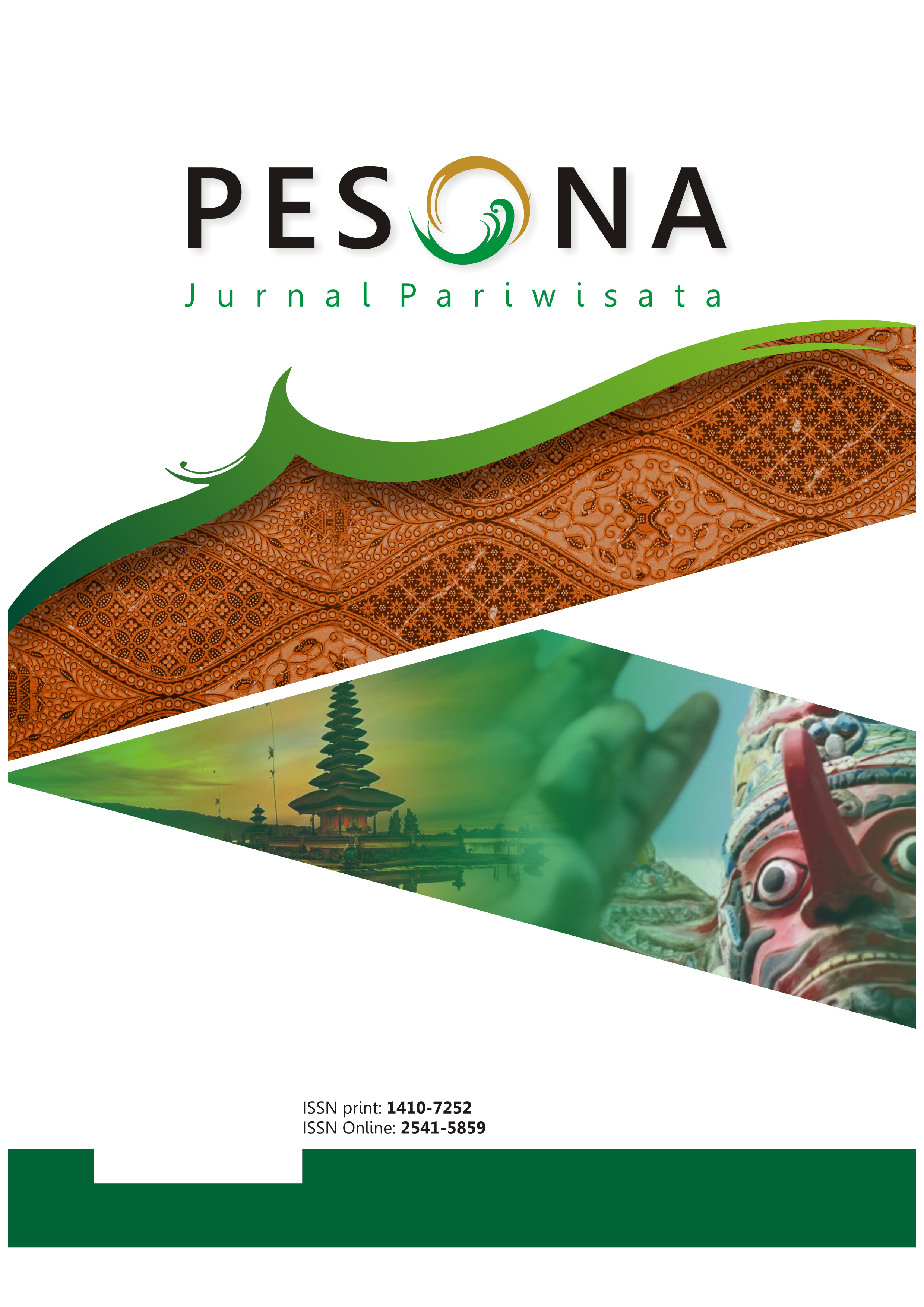Strategic approaches to tourism development in village destinations for increased competitiveness and sustainability
Keywords:
bali, sustainable tourism, SWOT analysis, tourism developmentAbstract
Tourism has become a significant driver of global economic dynamics, including in Indonesia. This sector acts as a catalyst for economic growth through job creation, foreign exchange earnings, and the revitalization of local culture. However, like other sectors, tourism faces challenges that require adaptation. The COVID-19 pandemic was one of the biggest challenges, causing prolonged stagnation, the closure of tourist destinations, and a drastic decline in tourist numbers. Post-pandemic, there has been a strong push not only to recover tourism but also to reconstruct it with more sustainable and resilient approaches. In Indonesia, there is growing attention towards sustainable tourism development, in line with global commitments to the Sustainable Development Goals (SDGs). One notable example is the development of tourist villages that not only rely on natural and cultural attractions but also emphasize local community empowerment, environmental preservation, and cultural heritage protection. This study focuses on Desa Wisata Antap, a tourism village in Bali with considerable potential that has yet to be optimally utilized. The research aims to identify internal and external conditions affecting the sustainability of tourism in Desa Wisata Antap and provide strategic alternatives for sustainable tourism development. A qualitative approach using SWOT analysis was employed to explore existing conditions, identifying strengths, weaknesses, opportunities, and threats. The findings highlight the importance of active stakeholder involvement and the need for integrated management strategies that balance economic, social, and environmental sustainability. The proposed strategies emphasize collaboration, digital marketing, and capacity building to ensure the long-term sustainability of the destination.Downloads
References
Aji, R. R. (2021). Pengembangan Pariwisata Alam Dalam Mendukung Pembangunan Berkelanjutan Di Desa Wisata Pentingsari (Nature Tourism Development to Supporting Sustainable Development in Pentingsari Tourism Village). Jurnal Perencanaan Wilayah Dan Kota, 16(2), 9–17.
Arida, I. N. S. (2017). Buku Ajar Pariwisata Berkelanjutan. Sustain-Press. www.sobatpetualang.com
De Kadt, E. (1984). Tourism - Passport to Development? (2nd ed.). Oxford University Press.
Dias, Ã., Viana, J., & Pereira, L. (2024). Barriers and policies affecting the implementation of sustainable tourism: the Portuguese experience. Journal of Policy Research in Tourism, Leisure and Events, 1–19.
https://doi.org/10.1080/19407963.2024.2314514
Ernawati, D. P. (2019). Development of the Tourism Industry as the Motor of Economic Growth in Indonesia. International Journal of Science and Society, 1(4), 145–153. https://doi.org/10.54783/ijsoc.v1i4.300
Fadli, Moh., Susilo, E., Puspitawati, D., Ridjal, A. M., Maharani, D. P., & Liemanto, A. (2022). Sustainable Tourism as a Development Strategy in Indonesia. Journal of Indonesian Tourism and Development Studies, 10(1), 23–33. https://doi.org/10.21776/ub.jitode.2022.010.01.04
Hasibuan, M. S. P. (2016). Manajemen Sumber Daya Manusia (Rev, Vol. 22). Bumi Aksara.
Kawuryan, M. W., Fathani, A. T., Purnomo, E. P., Salsabila, L., Azmi, N. A., Setiawan, D., & Fadhlurrohman, M. I. (2022). Sustainable Tourism Development in Indonesia: Bibliometric Review and Analysis. Indonesian Journal of Geography, 54(1). https://doi.org/10.22146/ijg.64657
Kementerian Pariwisata dan Ekonomi Kreatif. (2021). Tren Pariwisata Indonesia di Tengah Pandemi. Kemenparekraf.Go.Id.
Nasruddin, N., Normelani, E., & Kumalawati, R. (2019). Strategy for the Development of Kampung Sasirangan as Edutourism Village. Journal of Indonesian Tourism and Development Studies, 7(3), 205–210. https://doi.org/10.21776/ub.jitode.2019.007.03.10
Nuryanti, W. (1993). Desa Wisata. Concept, Perspective and Challenge.
Porter, M. E. (1985). Competitive Advantage: Creating and Sustaining Superior Performance (1st ed.). The Free Press.
Roxas, F. M. Y., Rivera, J. P. R., & Gutierrez, E. L. M. (2020). Mapping stakeholders’ roles in governing sustainable tourism destinations. Journal of Hospitality and Tourism Management, 45, 387–398. https://doi.org/10.1016/j.jhtm.2020.09.005
Sunarta, N., & Arida, S. (2017). Pariwisata Berkelanjutan. Cakra Press.
Taufik, M., Akmal Ibrahim, M., Ahmad, B., Suni, M., & Nur, M. (2023). Collaborative Government in Tourism Sector Development. KnE Social Sciences. https://doi.org/10.18502/kss.v8i17.14148
Downloads
Published
How to Cite
Issue
Section
License
Copyright (c) 2025 Jurnal Pariwisata Pesona

This work is licensed under a Creative Commons Attribution-ShareAlike 4.0 International License.

This work is licensed under a Creative Commons Attribution-ShareAlike 4.0 International License.



